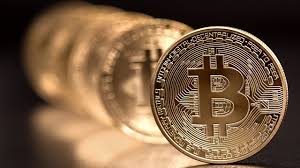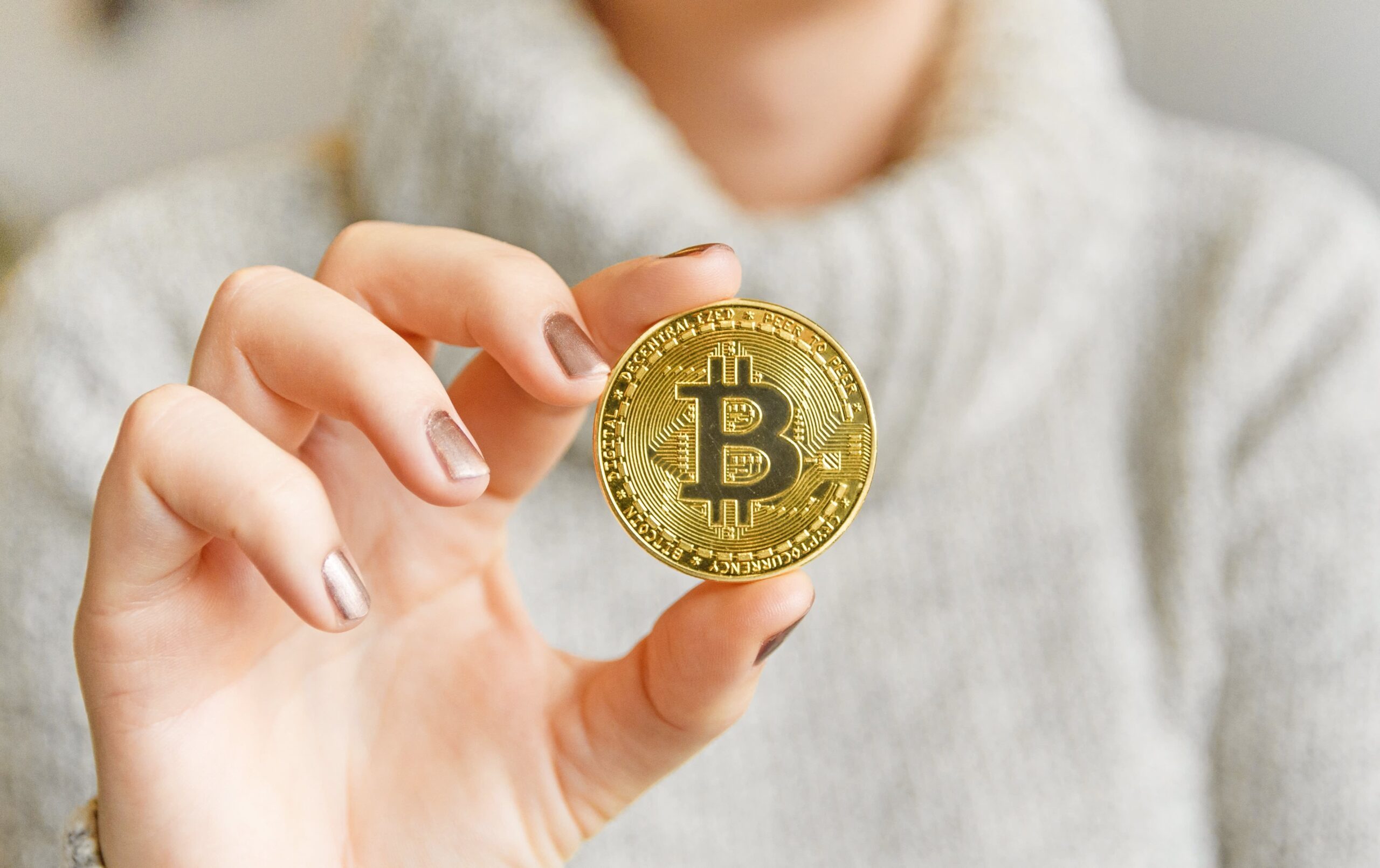Let me be clear from the beginning, there is a demand for a stable value, inflation-resistant currency in the world. It’s not Bitcoin.
Bitcoin might be the first through the door, it may revolutionize the zeitgeist ways we discuss the usage of currency and it might be an early aid in getting people around the world out of using their destabilized local currencies. But it will more likely be the myspace of currencies.
Inflation Hedge: Bitcoin can be a store of value
Bullish Bitcoin advocates have routinely promoted the digital coin as a reliable store of value. They are convinced the digital currency can be a store of value assets like, commodities, or currencies that maintain their value.
So many of these advocates see bitcoin as an “inflation hedge.” And while it might be, I think there is a far greater concern that it outpaced any reasonable amount of hedging it was capable of. In 2020 inflation on the CPI was 2.3%, arguing that the buying power of U.S. dollars shrunk by 2.3%, but the bitcoin rose 66%. I would contend that while a small portion of the change was the result of inflation, the other 63.7% was pure speculation.
 Let’s look at other stores of value, say copper. When the price of copper increases by say 6% in a year, the first 2.3% can reliably be because the buying power of cash deteriorated in comparison to copper over the course of the year. The 3.7% delta is due to increased demand for copper usually as a result of its utility. Thus, the increase is driven by underlying market functions for copper. I think the same argument should be made for bitcoin, that the first amount it increases in value is the result of inflation and the second is the result of speculation on inflation. The speculation element is almost 29 times higher than the inflation rate in 2020.
Let’s look at other stores of value, say copper. When the price of copper increases by say 6% in a year, the first 2.3% can reliably be because the buying power of cash deteriorated in comparison to copper over the course of the year. The 3.7% delta is due to increased demand for copper usually as a result of its utility. Thus, the increase is driven by underlying market functions for copper. I think the same argument should be made for bitcoin, that the first amount it increases in value is the result of inflation and the second is the result of speculation on inflation. The speculation element is almost 29 times higher than the inflation rate in 2020.
I think with that ratio of inflation hedging capacity to speculation being so wide it cannot be a reliable replacement for traditional inflation hedges.
Let’s then add a more practical element, Bitcoin fever is not the honest result of people hedging their inflation bets. I don’t believe most of them are concerned about the pace of inflation that they can justify a 66% run-up as a concern for the Federal Reserves’ buying rate. It’s more likely the result of seeking a high return on assets. This is then where I am truly concerned about Bitcoin (or any cryptocurrency) being considered a store of value.
Let’s then take a look at the utility of Bitcoin. Some of the value of other stores of value is that they have an intrinsic utility. Arguably, they were a reliable “store of value” before they were thought of that way by markets. Since the dawn of commerce, traders have used precious metals and industrial metals to store value. They have a legacy of usefulness. Gold was made into jewelry early, then coinage, then dentistry, and now it’s mission-critical in aerospace and technology. It has always had a drop-dead value because of its innate function. So if you were worried about the governing power that developed a currency, in 700BC or 2021, dropping to zero, the store of value would still have some intrinsic usefulness. I’m not sure the same could be said for bitcoin, because unlike other commodities and precious metals I can’t make a house with it, mold it into utensils, or wear it around my neck. Bitcoins value without its relationship to other currencies is $0.

Market Hedge: Bitcoin can hold value when markets fall
For this, I think it’s important to look at the behaviors of the people who are buying both the market and the underlying fundamentals of each. I think that it is true, that both the market and Bitcoins are inflation-hedged assets. Only one of these makes sense over time.
Additionally, we look at the correlation of the greater market to Bitcoin. In terms of volatility, like March of 2020, we saw equity high volatility in Bitcoin. In times of expansion, we see similar directionality. I think a greater, more lasting argument can be made that Bitcoin’s success and the success of the market are the results of the same underlying causes of liquidity. As we generate more money in the world, the price of assets rises, this shouldn’t be a shock. What does become a point of distinction between the two is that while Bitcoin can arguably “inflate” as long as the de facto Crypto is still Bitcoin. What it cannot do, is provide the investor cash flow in the future. The market however is the representation of ownership over future cash flows. So when markets “sell-off” there is a bottom-rung where the price of future earnings is too appealing and recruits investors back to the marketplace. With no such promise of future cash flows from bitcoin, what becomes the bottom rung? For most commodities, it becomes its intrinsic value, for Bitcoin that is $0.
Fixed Asset: “Bitcoin is a fixed amount and there will never be more”
This is kind of an illusion. Yes, there will be a fixed amount of Bitcoins, but not a fixed amount of cryptocurrencies. Each currency type will have its own value, function, and framework. So if in the infinitely expansive ecosystem of “coinage” something comes along that can supplant the “fixed” appeal of bitcoin, and have some other benefit, the appeal of Bitcoin erodes overnight. Say for example a “fixed amount currency”, more granular than bitcoin, or fixed amount and acceptable in Costco whatever the case is, becomes the Bitcoin+ currency of choice.
Then it becomes a question of “How long will people accept my bitcoin?” and then it’s a run for the door trying to not be the last person holding a tulip. The race will become how many Bitcoin+ will I be able to exchange for my Bitcoin. So the argument that it’s “digital gold” is valid until there is a “digital gold platinum edition” and I think that is likely infinitely regressive. So as long the currency has no intrinsic value, it is left only to contend on its speculative value. The speculative value right now is largely based on vanity, its appeal, its “newness” and once the celebrity value shifts to the next new version, the value erodes quickly.
Bitcoin is “digital gold” becomes true until Elon Musk tweets “Bitcoin+ is digital platinum”…then the party is over.
User Adoption: “Bitcoin is becoming more popular with retailers by the day”
This is the only kind of true. I’m seeing more and more companies “take bitcoin” but I don’t see them keeping Bitcoin. Several of those transactions are being almost instantly converted to cash. Several of the companies “taking bitcoin” are only using it at the transaction level, then making a second transaction into cash to dollars so they can continue to run the business. At some point, the chain of cash flow defaults into the dollar to keep the wheel rolling. This limits the bitcoin use to a single transaction. Unlike the dollar which is routinely used at the retail transaction, then again at the supplier level, banking all the way to the top levels in capital markets.
As long as Bitcoin cannot safely be channeled up through the business it will suffer from transaction fees and other erosive legal and tax measures on the way to the bottom line. In the long term, the risk of capital loss through the balance sheet is still greater than using cash.
Future Currency: “Bitcoin will be used in the future”
Maybe…but I’m not so sure it has a fixed resource like Bitcoin. While I think some kind of digital currency has a fantastic transactional value for the future, I’m not sold that it’s because of the limited supply of bitcoin. We have several resources in the world that have a fixed supply, and they have been moved to the sidelines for ease of using the currency.
There has always been a demand for a reliable supply of currency. Through the years it’s been ducats, doubloons, pounds sterling, and now the U.S. Dollar. But three common characteristics of those currencies are 1) that the power that created them was a reliable place to do business 2) they were the economic authority of the time 3) they were all replaced by a currency that possessed more reliable markets.
 Regarding the first, it was part of the appeal of currency, that if I sold a piece of property (a real asset) in St. Augustine in 1500, that I could go back to Spain the following year, and the doubloon I used to transact had a predictable deliberate value. The issue with Bitcoin is that those swings are far too wild to be used to sell anything of value. You could buy a pizza in 2010 for 10,000 bitcoins and ten years later that pizza now has a value of $525m. I think while this story is humorous, it should highlight a more serious concern for anyone willing to use the currency. Sellers of real assets and buyers of bitcoin should always be concerned about the near-term risk of loss when the currency changes in value. Each side of the transaction should have a reasonable expectation that they are on the right side of the trade, for them. The real asset seller and bitcoin buyer should have an expectation they can buy something else later with the same or greater value. And the real asset buyer and bitcoin seller should have an expectation they can profit from the ownership of the real asset (land etc.). While I’m confident in the landowner’s future capacity, I don’t think that the bitcoin holder has the same expectation.
Regarding the first, it was part of the appeal of currency, that if I sold a piece of property (a real asset) in St. Augustine in 1500, that I could go back to Spain the following year, and the doubloon I used to transact had a predictable deliberate value. The issue with Bitcoin is that those swings are far too wild to be used to sell anything of value. You could buy a pizza in 2010 for 10,000 bitcoins and ten years later that pizza now has a value of $525m. I think while this story is humorous, it should highlight a more serious concern for anyone willing to use the currency. Sellers of real assets and buyers of bitcoin should always be concerned about the near-term risk of loss when the currency changes in value. Each side of the transaction should have a reasonable expectation that they are on the right side of the trade, for them. The real asset seller and bitcoin buyer should have an expectation they can buy something else later with the same or greater value. And the real asset buyer and bitcoin seller should have an expectation they can profit from the ownership of the real asset (land etc.). While I’m confident in the landowner’s future capacity, I don’t think that the bitcoin holder has the same expectation.
Imagine if you will, that Rome only minted 1000 gold bricks weighing 1000 pounds each for its currency…they would have been hard to traffic and harder to transact. I would be forced to shave off 10 slivers to buy an acre, 1 to buy a goat, and getting as granular as saying a meal would be impossible. Then because I’ve carved up the brick, it actually has a risk on the secondary market as a fraction of the minted (pristine) brick. I think this is a long-term issue for Bitcoin if it’s a bunch of fractional ownership of the denominated brick, and it lacks long-term authority to adopt a more useful framework. Then my concern is that Madrid comes along and mints 1m single coins and they can transact in a more fluid way. I think there is a very real risk of a more commercially viable “coin” in the pipe.
What happens if Bitcoin Wins: Everyone is now in, what?
Let’s say Bitcoin wins and becomes a trafficked and reliable currency. Then Bitcoin becomes the core and not the fringe element. As a fringe player, it gets the luxury of criticizing the status quo for its shortcomings. But what happens when it is a status quo currency and has to defend itself? The central governments of the world have several legal and economic handles they can pull to make themselves valuable and to control the use of their currency. They can increase supply, decrease supply, mandate usage, and taxes disproportionately threaten anything to keep the use of the currency and the attached economy intact.
With no central authority for Bitcoin, the currency becomes untethered. If it becomes too valuable to be used at all there is no supply coming to arrest the valuation. If the governments of the world view it as a threat there is no governing or taxing authority to deal with it. And if it hit $0 there is no way to necessitate it. Countries of the world have had experience with this decision that was made by the authorities of the world. Germany for example saw the Deutschmarks become worthless on the heels of the first world war. It then regrouped the treasury, redenominated bonds and notes to gold, and could restabilize currency in Germany. All as the results of government decision-making on both sides of their inflation issue.
So while treasuries and central banks of the world have the decision-making authority to cause a problem like hyperinflation, they also have the administrative tools to correct it or replace it.




